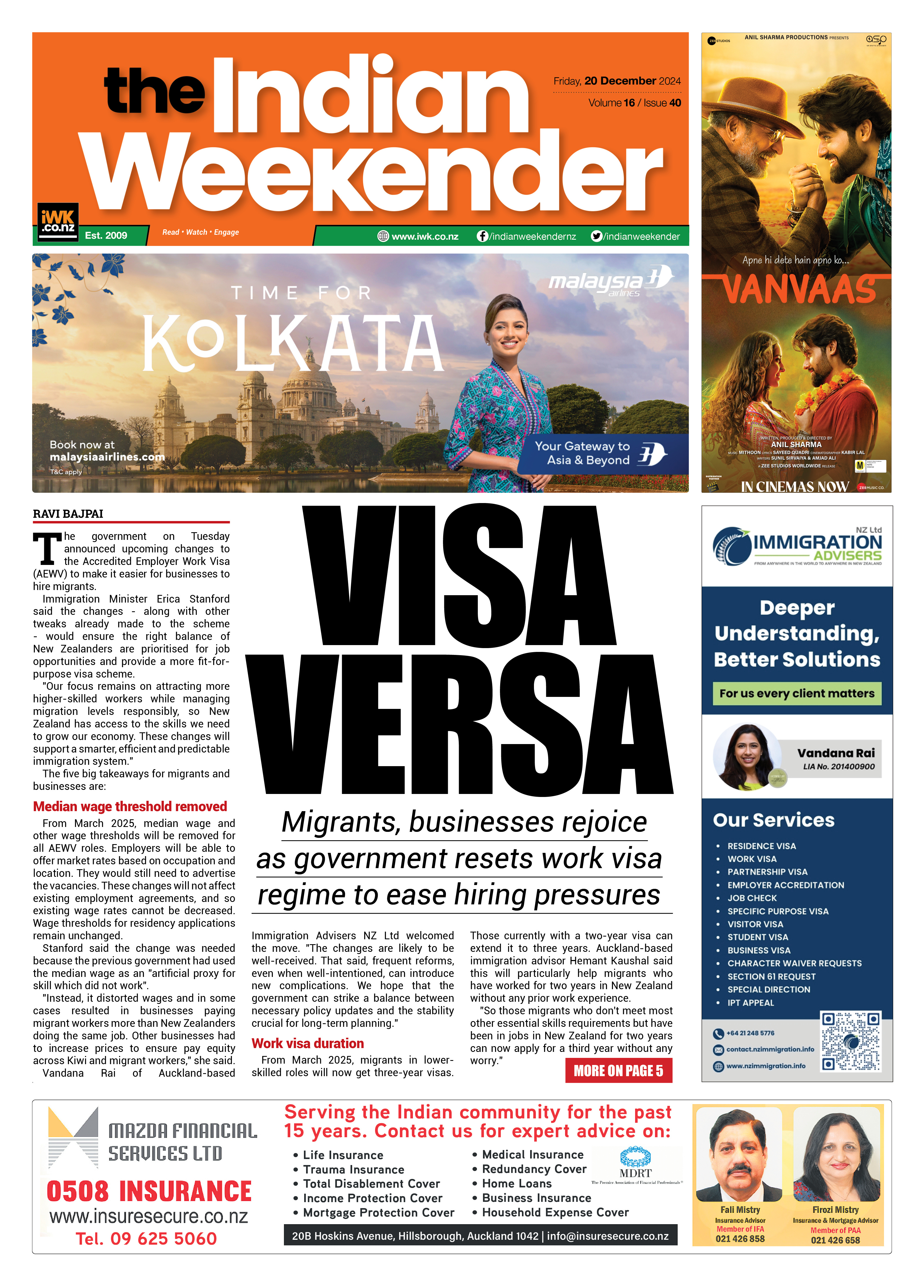'Several concerns about the immigration rebalance'

The Covid-19 pandemic and the ensuing lockdowns and restrictions have certainly proved to be a nightmare for New Zealand's hospitality sector.
Now that NZ is looking to open up and connect with the world, the hospitality sector has a ray of hope.
However, the industry is crippled with acute staff shortages like many other industries.
Indian Weekender spoke to Marisa Bidois, CEO of the Restaurant Association of NZ, to know the problems that the hospitality industry is facing and what steps the government needs to take to ensure that the sector is up and running as soon as possible.
“Our industry has lacked the people we need to support our growth for some time. Whilst we recognise and support the need to recruit and train a local workforce, we also need an immigration policy that helps us access the overseas labour market,” says Bidois.
The government has recently announced many changes in the immigration setting, including giving temporary exemption to tourism and hospitality businesses from paying the median wage to recruit migrants on an Accredited Employer Work Visa into most roles.
Instead, a lower wage threshold of $25 per hour will be required until April 2023. This follows the recent $27 per hour border exception that was granted around certain snow season roles to help the sector prepare for winter tourists.
But according to Bidois, they are not enough, and there is much more that is needed.
“Whilst the transition arrangement on the immigration rebalance settings for hospitality are welcomed, we still have several ongoing concerns around the rebalance and what this will mean for our industry. We look forward to meeting with Ministers in the coming weeks for further discussions about the future of hospitality in Aotearoa. The Restaurant Association will continue to advocate for and lobby the government on matters affecting hospitality, such as the immediate skills shortages and programmes that help support the hospitality industry’s recovery,” says Bidois.
Moving on to the recent budget announcement, which includes an extension of the Apprenticeship Boost initiative, Mana in Mahi and the Maori Trades and Training Fund to support businesses to take on apprentices, as well as $54.2 million toward a Tourism Innovation programme which will be designed with input from the sector as well as $100m for a Business Growth Fund for SMEs
Giving her view on the budget and what it means to the hospitality sector, Bidois says, “We welcome the extension of the Apprenticeship Boost initiative and the support to address the rising cost of living. We also look forward to providing input into the new Tourism Innovation programme, which the government have indicated will be designed with input from the Tourism (including hospitality) sector and finding out more about the Business Growth Fund to be developed.”
But Bidois does have her disappointment with the budget, which needed to be more focused on business support according to her. She says, "We are disappointed there was not more of a focus on targeted business support that addresses some of the challenges for sectors like ours, which has been hardest hit over the past two-plus years by Covid-19. We would have liked to see a targeted support package for hospitality specifically that is made up of more direct support and consumer-led support.”






